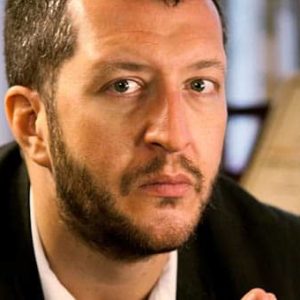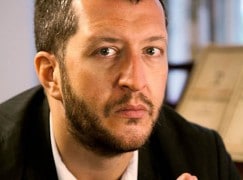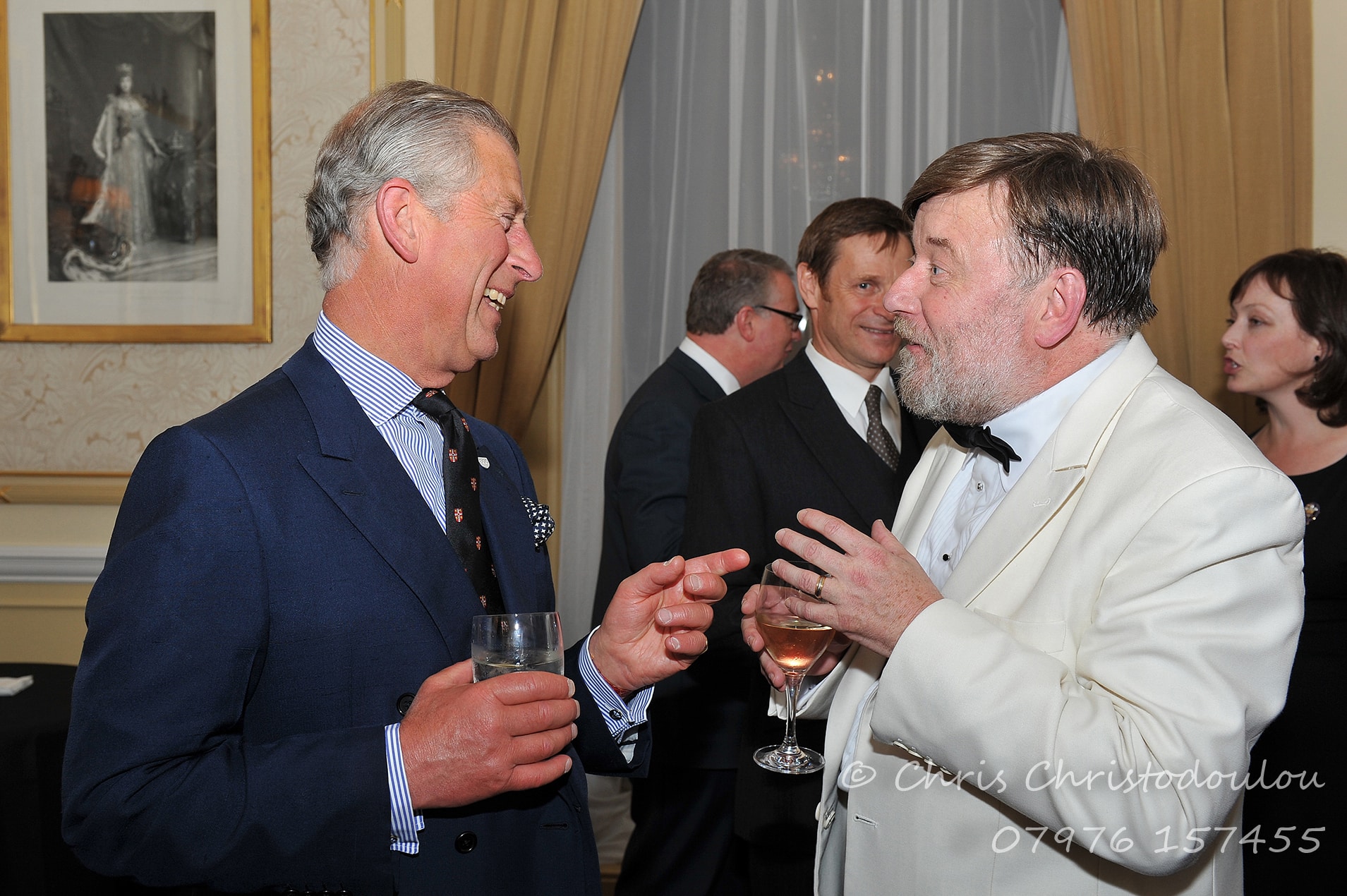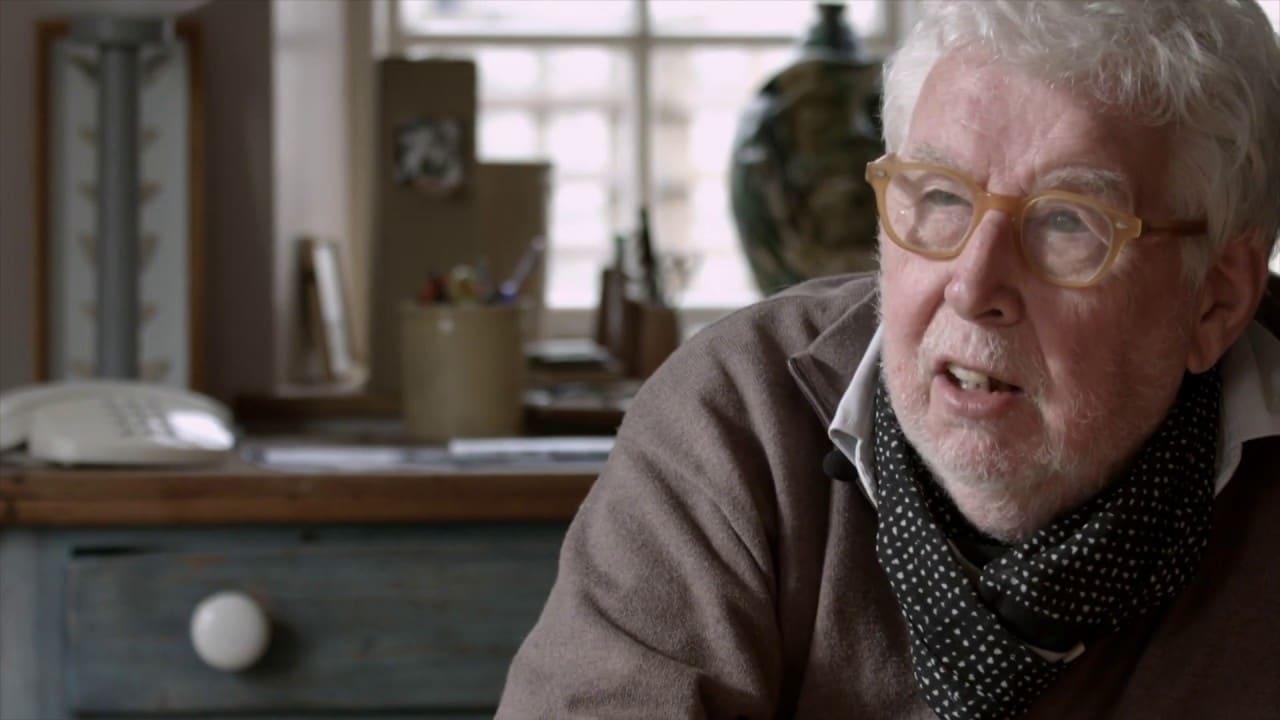Thomas Ades gets to write concerto for Anne-Sophie Mutter
NewsThe British composer has been commissioned by the Roche phamaceuticals foundation to compose a violin concerto for the regnant German concert star Anne-Sophie Mutter, 58.
It may sound a bit different from her last piece by John Williams.







I am not saying there is anything wrong with John Williams’ music, it’s fine stuff, but Ades is likely to tax AS-M’s technique rather more. If I was him, I’d write something damn near unplayable just to give her (and anyone else that wants to play it) a real challenge! Pick up where Enescu and Ysaye left off…
That would reduce performance opportunities drastically in the future.
Music is not some olympic game or obstacle race. It has to say something meaningful.
The burden of virtuosity of many contemporary violin concertos not only makes them less attractive for soloists but also for audiences. With the genre of the concerto, for whatever solo instrument, the real challenge is to have any virtuosity always in the service of musical expression, and that balance has always been hard to achieve. And some of the best concertos are relatively ‘simple’, like the Beethoven violin concerto.
For contemporary violin concertos there is an extra difficulty, namely that most of contemporary musical languages are not very strong on the point of expression. So, the balance is even harder to achieve.
Imagine then going back to 1806 in Vienna…
Concertmaster Franz Clement got the challenge of his life…
(Premiering the Beethoven Concerto, wich was by far “meaningful” or “accessible” back then!)
The Beethoven is still considered by most violinists to be the most perfect and ideal of all. It manages to integrate the technical display so it feels organic to the very exalted musical journey, more than others. I would also single out the Sibelius for those qualities. Even so, the Beethoven was a major leap in technique compared to earlier models. I think violinists would choose to play the most melodic, lyrical type of concerto they can, but most composers think the audience wants the fireworks. It’s a high-wire act, but not as moving.
True.
That’s not a practical way of encouraging future performance. Just ask Samuel Barber and Louis Gruenberg, authors of two of the finest American violin concertos. They chose different paths in their concerto writing and posterity has clearly decided which is better for repeat performances.
If she commissioned the work, or the piece was commissioned for her, why would a composer go out of their way to be devious? Commissions are a composer’s bread and butter before the the performance, music publication and sound recording royalties. Borstlap has it absolutely correct, you are not creating a sporting event, you are creating something you hope will have legs. All said, in my opinion, I have not heard a work by Ades I would pay money to hear a second time.
That’s the reason many composers go on writing new pieces.
looking forward to another fantastic work by Thomas Adès. Does anyone know what a commission like this should cost?
Depending upon available means and the fame of the composer, also considering the composer’s earlier concerto experience (was it good? or just awful?), a fee may be something between $ 15,000.– and $ 25,000.– for a 20 minutes orchestral score. On top of that there may be payment for a violin/piano score to be worked-out by the composer, for some $ 5,000.– or something more; this is for the soloist to study the work with a pianist before orchestral rehearsels, to avoid unpleasant surprises.
It’s expensive indeed. But writing a violin concerto is one of the most difficult challenges, hence we don’t have many of them.
Writing a bad and puffectly useless concerto is as expensive because nobody quite knows in advance what will come out, not even the composer.
There are fantastic violin concertos by French tonal composer Nicolas Bacri (look them up in youtube, really worthwhile). He also wrote a double violin concerto which was performed a couple of years ago in Baden-Baden to great acclaim.
But of course…nothing less than a double concerto would fill the bill for Baden Baden, it goes without saying…twice.
Indeed, indeed.
Remember when the excitement would be about the composer and the music, not about the star who would perform it?
Indeed.
That was before Schoenberg and his followers claimed that writing music was foremost an intellectual exercise. In the wake of this misconception, much new music turned into pure sound, trying to imitate progress as in science. Which is of much less interest for both performers and audiences.
And when some more intelligent composers wanted to return to the real nature of music, they were condemned for being conservative or worse.
I just love the way Borslap and his like blame all the ills of modern culture on Schoenberg. As if the music of more traditional mid-century composers was wildly embraced by audiences.
Most good music written in the 1st half of the last century was quickly accepted: Debussy (who became a sensation, against his will), Ravel, Stravinsky, Szymanowsky, Prokofiev, Bartok, etc. etc. Music spread-out like a delta after Wagner, and retained contact with audiences. The Schoenberg movement, which was really a linear ideology of progress and marginal, wrote itself out of this delta because it did not accept diversity and pluralism. It wanted streamlining, orthodoxy, exclusion, etc.
No, I don’t. Concerti (and operas, for that matter) have always been vehicles for celebrity performers. Nothing at all new about that.
The really good concerti are the works with musical substance, virtuoso or not.
In honor of Roche Pharmaceuticals sponsorship, the work’s title is Valium Variations for Violin and Orchestra.
I would LOVE to hear this, I’m always so stressed when I come home from work. Music is for relaxing not for thinking and stuff. Life is already hard enough as it is!
Sally
Not that different. It all comes from the same school of re-stewed romanticism.
And a Concerto for ondes Martenot for Cynthia Millar, drawing on material from his opera The Exterminating Angel.
She’s going to be asked to play using a headache tablet?
I would compose one for free.
Hopefully it will be playable by any aspirin’ virtuoso?!
Great. More hot garbage from someone who has no clue how to write for individual instruments, especially brass.
Ades was once attacked by a tuba player who forced his instrument over A’s head. But this helped him to write better for the instrument.
A fair assessment of Adès was penned a few weeks ago by Norman Lebrecht on the scena website when he reviewed the string quartet ” four quarters”
I’m usually into his music but for me, the Piano Concerto totally sucked. Here’s hoping this one’s a hit! Anyone agree about the Piano Concerto?
Ades wanted to write a ‘real’ concerto, like Rachmaninoff’s concertos. So, that is a very laudable plan, and a courageous one, wanting to return to real, expressive music with a romantic solo part.
https://www.youtube.com/watch?v=4VIjiFRFajc
A reason for rejoicing and applauding the intention which holds great risk. Only, the music sounds as if the composer had first drunk a considerable amount of alcohol before starting the daunting task.